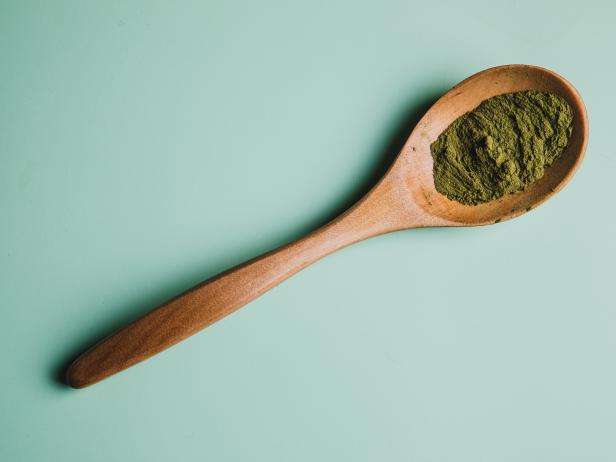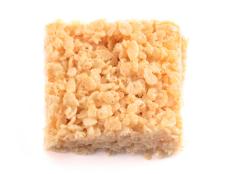Why You Should Think Twice Before Using a Greens Powder, According to a Nutritionist
There’s not a lot of evidence to support products’ claims.

Kilito Chan/Getty Images
There has been an influx of greens powders hitting market shelves. Most claim that they provide daily nourishment – and some promise more. Some additional claims you may see include improved energy, immunity, circulation and digestion. But how safe are these green powders, which can be packed with 20, 30 or even 75 ingredients? Here’s a look at why you should think twice before using greens powders regularly.
What Do Greens Powders Contain?
Although this varies between brands, you’ll typically find a combination of many ingredients which may include vitamins, minerals, probiotics, adaptogens, enzymes, amino acids, essential fatty acids, phytonutrients and antioxidants. Although there may be studies on many of the individual ingredients, when they are taken together they can interact differently. In addition, there is very little research on these powders with their massive amounts of ingredients when taken altogether. Further, many of the adaptogens in greens powders interact with everyday medications (like blood clotting medications) or are contraindicated for health conditions (such as diabetes). There is no warning or caution listed on most of the greens powders, and as such it is important to check with your medical doctor or registered dietitian nutritionist (RDN) before taking it regularly.
Are Greens Powders Regulated?
Dietary supplements like greens powders aren’t well regulated by the Food and Drug Administration (FDA). This means that the ingredients, ingredient amounts, and even nutritional info you find listed under the “supplemental facts” aren’t necessarily accurate. If you do choose to take a greens powder, look for a third-party verification that ensures what is on the label is actually in the canister.
Are All Those Ingredients Necessary?
Many of these supplements provide ingredients that you may feel are healthy. However, they’re not usually necessary and are often touted as healthy when they really aren’t. Here are a few examples:
Chlorophyll: There are claims that chlorophyll can help provide energy, help with weight loss and even prevent cancer, however, there is little research to back up any of these claims.
Essential Fatty Acids: Although some of the labels don’t explain which ingredients you’re getting your essential fatty acids from, the main essential fatty acid they’re likely talking about are omega-3 fats. There are several kinds of omega-3 fats which you can get from foods like walnuts, canola oil and fatty fish like salmon and tuna, so taking a supplement isn’t necessary to get these nutrients.
Antioxidants: Fruits and vegetables are one of the main sources of antioxidants. According to the CDC, only one in ten individuals meet the daily recommended amount of vegetables (meaning, they’re probably short on some antioxidants, too). Instead of opting for super expensive powders, up your fruit and veggie daily intake to get those antioxidants.
Digestive Enzymes: Some greens powders contain enzymes, which help catalyze chemical reactions in the body. Enzymes are naturally made in your body and there is no need to take them daily in a greens powder. For example, the enzyme lipase helps break down fat—your body makes the enzyme naturally.
Bottom Line: Save your money by skipping on any of these green mixtures. They just contain too many ingredients, and there is little evidence on their effectiveness with their suggested dosage. If you do choose to try any of these blends, always check with your health professional first about any health or medication interactions and make sure the blend is third-party verified.
Related Content:
































